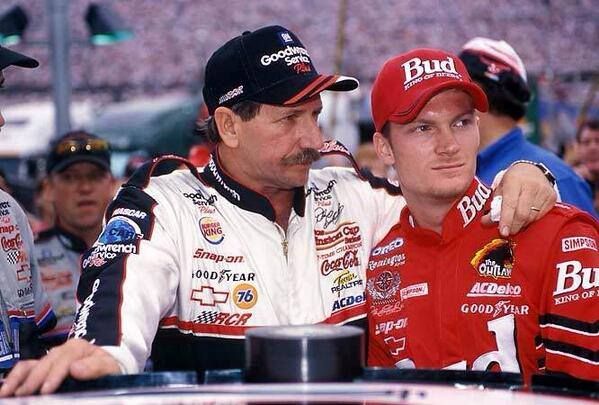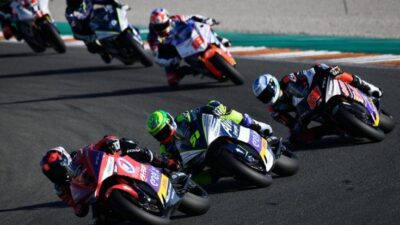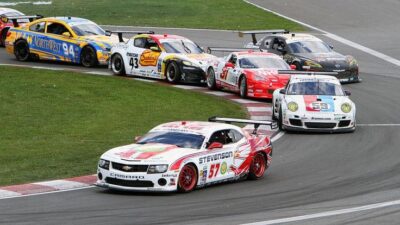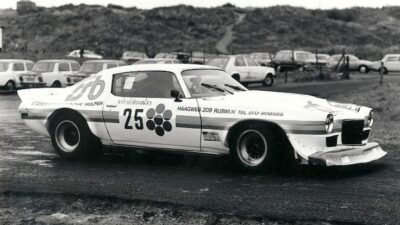Racing talent often runs in families, creating some of the most compelling stories in motorsport history. From Formula 1 champions to rally legends, father-son racing duos have shaped the sport across multiple generations and disciplines.

These legendary pairs have achieved remarkable success, with some becoming the only father-son combinations to win world championships in their respective categories. The Hills, Rosbergs, and Verstappens represent just a few examples of families where racing excellence passes from one generation to the next.
The motorsport world continues to witness new generations stepping into their fathers’ footsteps, each carrying both the advantages of family legacy and the pressure of living up to established reputations. Some thrive under this pressure while others buckle, but all contribute to the rich tapestry of racing history.
Key Takeaways
- Multiple father-son pairs have won world championships in Formula 1, with the Hills and Rosbergs being the most successful combinations
- Racing dynasties span beyond Formula 1 into rally, IndyCar, MotoGP, and other motorsport disciplines worldwide
- Following a famous racing father creates both unique opportunities and intense pressure for the next generation
The Legacy of Famous Father-Son Racing Duos

Racing families create unique bonds that blend personal relationships with professional competition. These father-son motorsport duos shape the sport through shared knowledge, inherited talent, and evolving racing approaches across generations.
Defining the Father-Son Dynamic in Motorsport
The relationship between racing fathers and sons goes beyond typical family bonds. Fathers serve as mentors, coaches, and role models while their sons navigate the pressures of following established legacies.
Dale Earnhardt Sr. and Jr. exemplify this dynamic perfectly. The elder Earnhardt was known as “The Intimidator” with his aggressive racing style. Dale Jr. developed his own approach while carrying forward the family name in NASCAR.
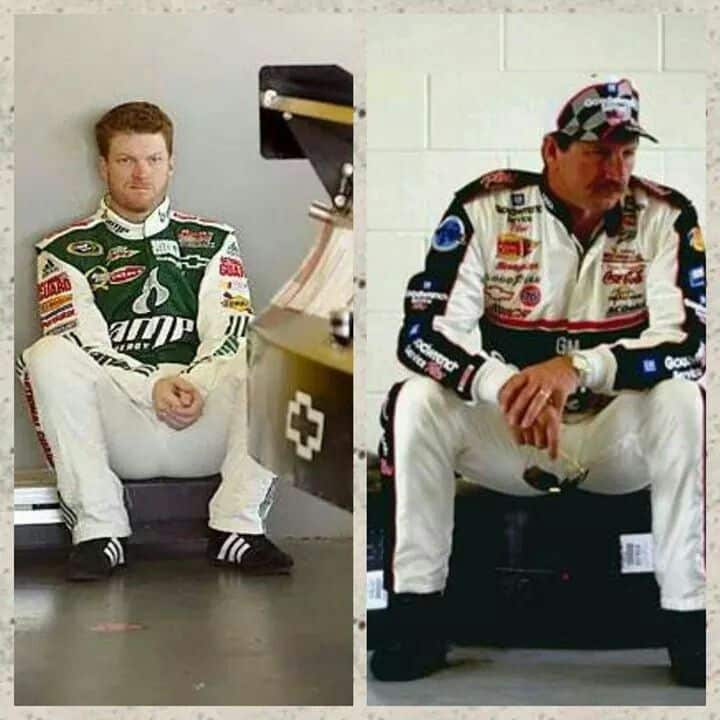
Key aspects of the father-son racing relationship include:
- Mentorship: Fathers provide technical knowledge and racing wisdom
- Financial support: Established racing careers often fund sons’ early development
- Emotional guidance: Managing pressure and expectations in competitive environments
- Legacy preservation: Continuing family traditions and racing philosophies
This dynamic creates both opportunities and challenges. Sons gain access to insider knowledge and connections but face constant comparisons to their fathers’ achievements.
The Influence of Family Heritage on Racing Careers
Racing heritage provides significant advantages for second-generation drivers. Family connections open doors to teams, sponsors, and opportunities that might otherwise remain closed.
The Andretti racing family demonstrates this influence across three generations. Mario Andretti’s success in Formula One and IndyCar created pathways for Michael Andretti’s career. Michael then established Andretti Autosport, providing opportunities for his son Marco.
Heritage advantages include:
| Benefit | Description |
|---|---|
| Industry connections | Access to team owners and sponsors |
| Technical knowledge | Understanding car setups and racing strategies |
| Financial resources | Funding for expensive racing programs |
| Media attention | Built-in publicity and fan interest |
However, family names also create pressure. Sons must prove themselves beyond their surnames while managing expectations from fans and media who constantly compare their performances to their fathers’.
Generational Shifts and Evolving Racing Styles
Each generation brings new approaches to racing that reflect changing technology and competition styles. Fathers and sons often display different racing philosophies shaped by their respective eras.
Max Verstappen represents this evolution clearly. His father Jos competed in Formula One during the 1990s and 2000s but never won a race. Max became the youngest F1 race winner and now challenges for championships with modern racing techniques.
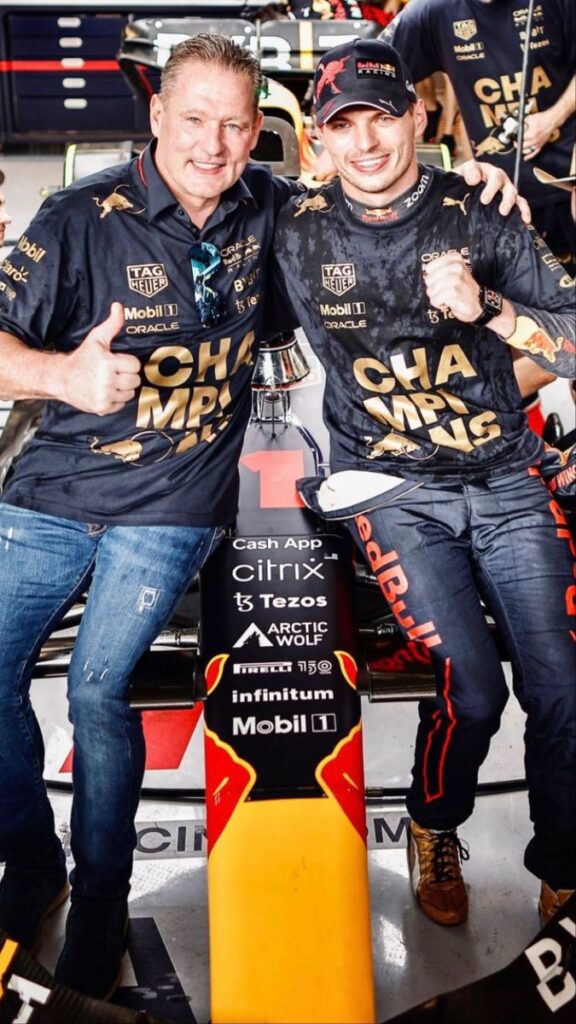
Generational differences often include:
- Technology adaptation: Younger drivers grow up with advanced simulators and data analysis
- Physical preparation: Modern fitness and training methods
- Mental approach: Different attitudes toward risk and competition
- Media handling: Social media savvy versus traditional publicity methods
The Schumacher family shows this transition too. Michael dominated F1 through raw speed and tactical brilliance. His son Mick enters the sport with different tools and training methods available to modern drivers.
These shifts don’t diminish either generation’s contributions. Instead, they show how motorsport evolves while family legacies adapt and continue.
Formula 1’s Iconic Father-Son Duos

Formula 1 has witnessed several legendary father-son combinations who achieved championship success across different generations. The most successful father-son duos in F1 history include the Hills with their combined three world titles, the Villeneuves who both claimed championships despite tragedy, and the Verstappens who represent the sport’s modern era of excellence.
Graham Hill and Damon Hill: The Triple Crown and F1 Champions
Graham Hill remains the only driver to complete motorsport’s Triple Crown, winning the Monaco Grand Prix, Indianapolis 500, and Le Mans 24 Hours. He captured two F1 world championships, first in 1962 with BRM and again in 1968 with Lotus.
His five Monaco Grand Prix victories earned him the nickname “Mr. Monaco.” Graham’s career spanned 17 years before his tragic death in a plane crash when Damon was still a teenager.
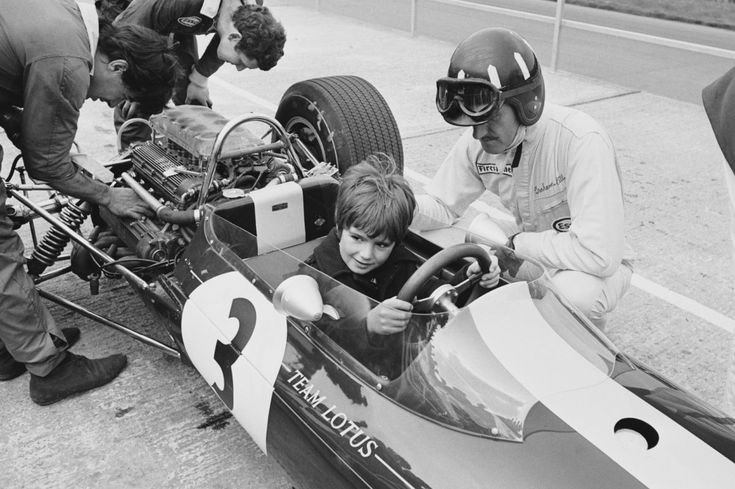
Damon Hill eventually found his way into F1 as a test driver for Brabham before joining Williams. He won 22 Grand Prix races and claimed the 1996 world championship.
The Hills represent one of only two father-son pairs to both win F1 world titles. Their combined achievements span three decades of Formula 1 excellence.
Gilles Villeneuve and Jacques Villeneuve: From Tragedy to Triumph
Gilles Villeneuve raced for Ferrari from 1978 until his fatal accident at the 1982 Belgian Grand Prix. He won six Grand Prix races and nearly claimed the 1979 championship, finishing second behind teammate Jody Scheckter.
His aggressive driving style and fearless approach made him one of the most respected drivers of his era. Gilles came close to winning the world title but never achieved that ultimate goal.
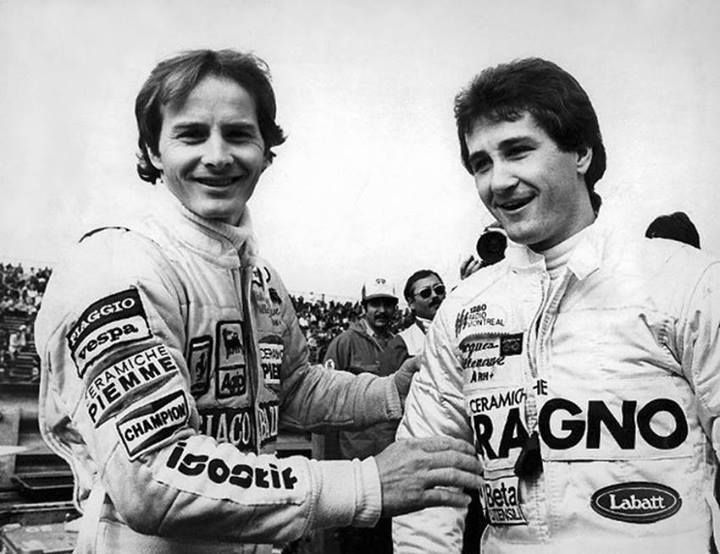
Jacques burst onto the F1 scene with Williams 14 years after his father’s death. He nearly won the championship in his debut 1996 season, finishing second to Damon Hill.
Jacques won the 1997 world championship after a dramatic battle with Michael Schumacher. The German was disqualified from the championship after colliding with Villeneuve at the final race in Jerez.
Jos Verstappen and Max Verstappen: A New Era of Dominance
Jos Verstappen competed in F1 for eight seasons across 10 years, making 106 starts between 1994 and 2003. He achieved two podium finishes at the 1994 Hungarian and Belgian Grand Prix while driving for Benetton alongside Michael Schumacher.
Despite limited success, Jos passed crucial racing knowledge to his son Max. He guided Max through junior categories before the young Dutchman made his F1 debut at age 17.
Max Verstappen has established himself as one of the best drivers on the grid, winning his first race at the 2016 Spanish Grand Prix on his Red Bull debut. He has since become a multiple world champion.
The Verstappens represent F1’s new generation, with Max achieving far greater success than his father while benefiting from Jos’s experience and guidance throughout his career.
Famous Father-Son Pairs Beyond Formula 1

While Formula 1 showcases many legendary racing families, other motorsport disciplines have produced equally impressive father-son legacies. Mario Andretti conquered multiple racing series while Michael dominated IndyCar, Dale Earnhardt Sr. ruled NASCAR before his son carried the family name to victory, and Keke Rosberg’s F1 championship preceded Nico’s own title triumph.
Mario Andretti and Michael Andretti: A Versatile Racing Heritage
Mario Andretti stands as one of motorsport’s most versatile champions. He remains the only driver to win the Indianapolis 500, Daytona 500, and a Formula 1 world championship. His 1978 F1 title with Lotus cemented his status as racing royalty.
Mario’s success across different racing disciplines earned him recognition as one of America’s finest all-around racers. His ability to adapt between open-wheel, stock car, and Formula 1 racing demonstrated exceptional skill and versatility.
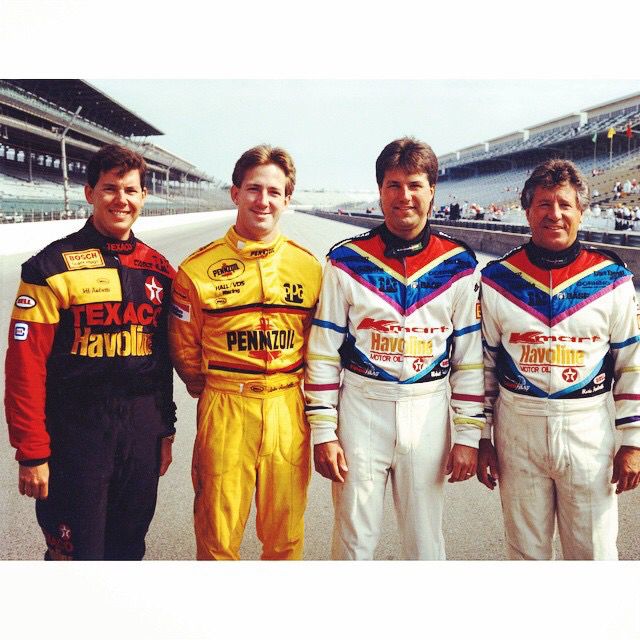
Michael Andretti followed a different path to success. While his Formula 1 career proved challenging, he found his calling in American IndyCar racing. He captured the IndyCar championship in 1991 and became the third most successful driver in the series’ history by total wins.
Today, Michael operates Andretti Autosport, one of America’s most successful racing teams. His son Marco continues the family tradition by competing in IndyCar, making the Andrettis a three-generation racing dynasty.
Dale Earnhardt Sr. and Dale Earnhardt Jr.: NASCAR Titans
Dale Earnhardt Sr. dominated NASCAR with seven Cup championships and 76 Winston Cup race victories. Known as “The Intimidator,” he became one of stock car racing’s most feared and respected competitors. His aggressive driving style and championship success made him a NASCAR legend.
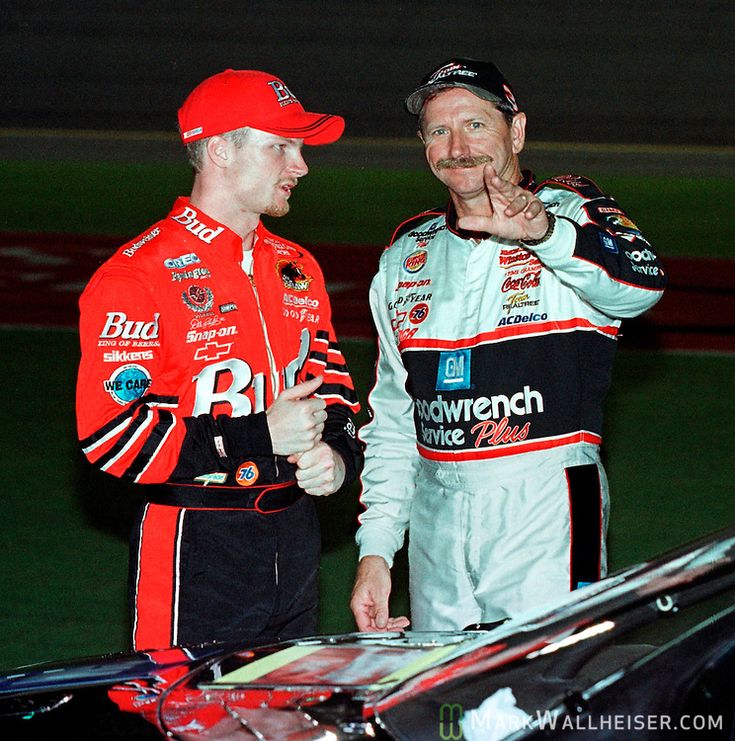
Tragedy struck in 2001 when Earnhardt Sr. died in a last-lap crash at the Daytona 500. His death shocked the racing world and led to major safety improvements in NASCAR.
Dale Earnhardt Jr. carved his own path in NASCAR following his father’s legacy. He won the Busch Series Championship twice in 1998 and 1999. His NASCAR Cup Series career included 26 victories and two Daytona 500 wins in 2004 and 2014.
Junior’s popularity extended beyond his racing achievements. He became one of NASCAR’s most beloved drivers and maintained strong fan support throughout his career until retirement in 2017.
Keke Rosberg and Nico Rosberg: From Williams to Mercedes
Keke Rosberg’s Formula 1 journey began in 1978 with several uncompetitive seasons. His fortunes changed when Williams signed him for 1982. Despite winning only one race that season, his consistent performance secured the drivers’ championship.
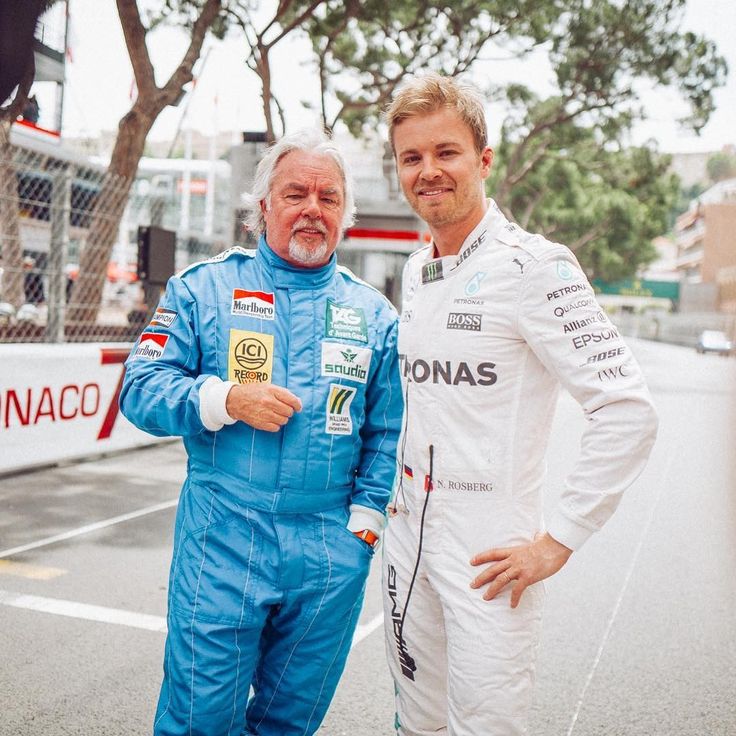
Keke’s title victory demonstrated how strategy and consistency could overcome raw speed in Formula 1. His championship remains one of the sport’s most surprising title wins.
Nico Rosberg exceeded his father’s F1 accomplishments with 23 career victories. He started with Williams from 2007-2009 before joining Mercedes. His partnership with the Silver Arrows coincided with their dominance in the turbo-hybrid era.
Nico’s rivalry with teammate Lewis Hamilton defined his career peak. After finishing second in 2014 and 2015, he finally captured the 2016 championship. In a shocking move, he announced his retirement just days after winning the title, leaving Formula 1 at his career’s highest point.
Championship Successes and Shared Achievements

The world of motorsport has witnessed multiple generations of racing families capture prestigious titles and break historic records. These achievements span decades and showcase how talent often runs in family bloodlines.
Winning Titles Across Generations
Formula One has seen several father-son championship combinations that demonstrate racing excellence across different eras. Graham Hill claimed two F1 championships in 1962 and 1968. His son Damon Hill won the 1996 Formula One title, making them the first father-son duo to both become world champions.
The Hill family holds a unique distinction in motorsport history. Graham Hill remains the only driver to win the Triple Crown of Motorsport. This includes victories at the Monaco Grand Prix, Indianapolis 500, and Le Mans 24 Hours.
Keke Rosberg won the 1982 F1 championship in unusual fashion. He took the title despite winning only one race that season. His son Nico Rosberg captured the 2016 Formula One championship by defeating Lewis Hamilton.
Jacques Villeneuve accomplished what his father Gilles could not. Jacques won the 1997 F1 title while driving for Williams. He became the only Canadian driver to claim a Formula One championship.
Max Verstappen has already surpassed his father Jos in terms of achievements. While Jos never won a championship during his F1 career from 1994 to 2003, Max became the youngest race winner in F1 history at age 18.
Historic Firsts and Record-Breaking Feats
The Indy 500 has been dominated by racing families throughout its history. The Unser family claimed nine victories at the famous Brickyard, with Al Unser Sr. holding the record for most wins with four victories.
Al Unser Jr. won twice at Indianapolis and captured two CART series championships. The younger Unser earned 34 career victories during his racing career in the 1990s.
Mario and Michael Andretti represent one of motorsport’s most successful dynasties. Mario won races across multiple series including Formula One, IndyCar, and NASCAR. Michael found his greatest success in CART IndyCar racing, winning the 1991 championship title.
The Andretti legacy continues today through three generations. Michael now owns Andretti Autosport, one of America’s most successful racing teams. His son Marco competes in the IndyCar series, extending the family’s racing tradition.
Dale Earnhardt Sr. won seven NASCAR Cup championships before his tragic death in 2001. Dale Earnhardt Jr. achieved different success, winning the Daytona 500 twice and earning the Most Popular Driver award 12 times.
Challenges and Pressures in Following a Racing Legacy

Following in a parent’s footsteps brings unique pressures that shape both career trajectory and personal identity. The weight of comparison creates additional mental challenges while parental guidance offers crucial advantages in navigating the competitive motorsport world.
Dealing with Expectations and Comparisons
The burden of living up to a famous racing name creates intense pressure from the moment a driver enters competition. Dale Earnhardt Jr. faced significant challenges being born into NASCAR royalty, noting that “not everything is a bed of roses” when carrying the legacy of a seven-time champion father.
Damon Hill experienced this pressure firsthand after his father Graham Hill’s death in a plane crash. The younger Hill didn’t begin racing until years later, partly due to the overwhelming expectations tied to the Hill name.
Media scrutiny intensifies when famous surnames enter the paddock. Every mistake gets magnified while successes are often attributed to family connections rather than individual talent.
The psychological toll can be significant. Some drivers struggle to establish their own identity separate from their parent’s achievements. Others use the comparison as motivation to exceed expectations and create their own legacy.
The Role of Mentorship and Guidance
Parental guidance provides invaluable advantages that money cannot buy. Jos Verstappen’s hands-on approach with Max Verstappen demonstrates how racing knowledge passed down through generations creates exceptional preparation for professional motorsport.
Financial backing represents another crucial advantage. Former racing drivers often possess the resources to fund expensive junior careers that would otherwise be impossible for most families.
The technical knowledge transfer proves equally important. Understanding racecraft, car setup, and mental preparation from someone who competed at the highest level gives sons a significant head start over competitors.
However, this guidance comes with strings attached. The constant presence of a famous parent can overshadow individual achievements and create questions about whether success stems from talent or connections.
Enduring Influence on Modern Motorsport

Father-son racing dynasties continue to shape how drivers enter and succeed in professional racing. These family connections provide unique advantages while creating lasting impacts on motorsport culture.
How the Father-Son Tradition Shapes Future Drivers
Racing families offer young drivers advantages that outsiders rarely access. Sons of famous racers get early exposure to high-level competition and professional techniques.
Financial Benefits play a major role. Established racing families have sponsor connections and funding sources. They can afford better equipment and training programs.
Mentorship from experienced fathers gives these drivers insider knowledge. They learn race strategy, car setup secrets, and how to handle pressure situations.
The racing environment becomes familiar from childhood. These drivers grow up around pit crews, team meetings, and race weekends. They understand the business side before they even start competing.
Network Access opens doors that stay closed to others. Team owners and sponsors already know the family name. This recognition can lead to better ride opportunities and faster career advancement.
However, pressure also increases with famous surnames. Young drivers must prove they earned their success through skill, not just family connections.
Famous Dynasties and Their Lasting Significance
NASCAR’s most famous father-son combinations have created lasting changes in American motorsport. The Earnhardt family transformed stock car racing’s image and fan culture.
Dale Earnhardt Sr. and Jr. brought different generations of fans to NASCAR. Senior’s aggressive style earned him seven championships. Junior’s popularity helped NASCAR reach mainstream audiences during the 2000s.
The Petty dynasty spans multiple decades of racing history. Richard Petty’s 200 race wins set records that still stand today. His family’s involvement continues through team ownership and driver development.
Elliott family success shows how racing knowledge transfers between generations. Bill Elliott’s speed records and Chase Elliott’s modern championships prove talent can evolve with changing technology.
These dynasties influence how teams scout new talent. Many organizations now focus on families with racing backgrounds. They believe genetic advantages and early training create better drivers.
Modern Impact extends beyond NASCAR into Formula 1 and other series. Teams actively recruit drivers from racing families, expecting faster development and better results.
Frequently Asked Questions

Racing families have produced some of motorsport’s most successful partnerships. The Hill and Rosberg families stand out as the only father-son pairs to both win Formula 1 championships.
Who are some notable father-son pairs who have both competed in Formula 1?
The most famous father-son pairs in Formula 1 include Graham and Damon Hill, Keke and Nico Rosberg, and Michael and Mick Schumacher. Nelson Piquet Sr. and Nelson Piquet Jr. also both raced in the sport.
Jos and Max Verstappen represent another well-known duo. Jos competed in F1 during the 1990s and early 2000s, while Max has become one of the sport’s biggest stars.
The Hill family tops the list of successful father-son duos when considering combined achievements. Graham Hill won two championships in the 1960s, while Damon Hill claimed the 1996 title.
Which father-son duo has both won Formula 1 World Championships?
Only two father-son pairs have both won Formula 1 World Championships. Graham Hill won championships in 1962 and 1968, while his son Damon Hill became champion in 1996.
Keke Rosberg won the 1982 championship during a closely contested season. His son Nico Rosberg captured the 2016 title before retiring from the sport.
The Rosberg and Hill families remain unique in achieving this rare double championship success. No other father-son combination has matched this accomplishment in Formula 1 history.
Can you list father and son combinations where the father owned a racing team and the son drove for it?
Jack Brabham founded Brabham Racing and won three championships driving for his own team. His son David Brabham later drove for the family team in the 1990s.
Paul Stoddart owned the Minardi team when his son raced in junior categories. However, direct father-owner and son-driver combinations in Formula 1 remain relatively uncommon.
Most successful racing families have focused on driver careers rather than team ownership. The complexity and costs of running F1 teams often require full-time dedication separate from driving careers.
Who is a prominent father in the history of F1 whose son has also become an F1 driver?
Michael Schumacher stands as the most successful father in F1 history whose son also reached the sport. Michael won seven world championships and 91 races during his career.
His son Mick Schumacher competed in Formula 1 from 2021 to 2022 with the Haas team. Mick struggled to match his father’s success during his brief F1 stint.
The Schumacher family represents the highest-profile example of a legendary champion passing the racing gene to the next generation. Michael’s achievements created enormous expectations for Mick’s career.
Are there any father-son pairs that have been champions in NASCAR?
Lee Petty won three NASCAR championships in the 1950s. His son Richard Petty became NASCAR’s most successful driver with seven championships.
Dale Earnhardt Sr. won seven NASCAR championships before his tragic death in 2001. His son Dale Earnhardt Jr. became one of NASCAR’s most popular drivers but never won a championship.
The Petty family represents NASCAR’s most successful dynasty. Richard Petty’s 200 race wins remain a NASCAR record that may never be broken.
How common is it for sons of former F1 drivers to follow in their fathers’ footsteps within the sport?
Many F1 drivers’ sons attempt racing careers, but few reach Formula 1. The sport requires exceptional talent, significant financial backing, and proper opportunities.
Famous surnames provide advantages in sponsorship and connections. However, the pressure of living up to a successful father’s legacy can also create challenges.
Racing talent and passion often run in families, but success isn’t guaranteed. Each generation must prove themselves on track regardless of their family name.
